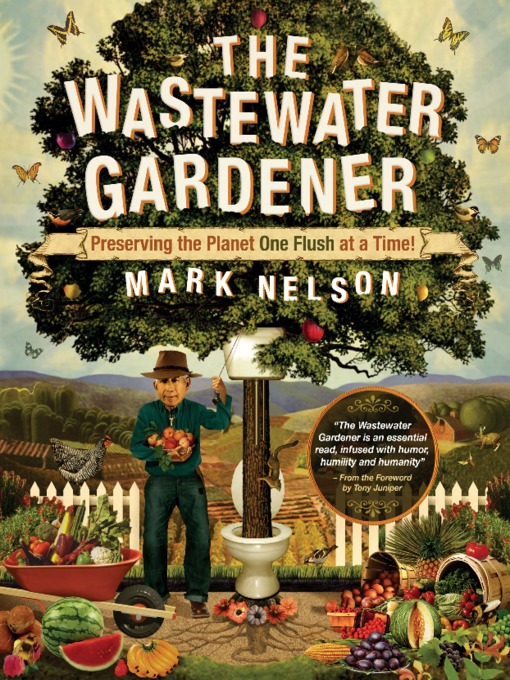Mark Nelson, PhD, takes us on a global expedition to learn how we are wasting the world's dwindling supply of fresh water by flushing away a very valuable resource, our own human wastes! The author is founding director of the Institute of Ecotechnics and has worked for several decades in closed ecological systems research. As one of eight brave souls enclosed in the pioneering Biosphere 2 experiment, Nelson realized how essential the proper use of human waste is to the health of the planet. This, combined with his lifelong love affair with constructed wetlands, led to the discovery of Wastewater Gardens, an important solution to some of our trickiest global environmental dilemmas. While the problems and case studies covered in this book are indeed quite serious, Mark's approach to the subject makes for a fun, down-to-earth and very informative read. The foreword is written by renowned British environmentalist Tony Juniper.
The Wastewater Gardener
Preserving the Planet One Flush at a Time
-
Creators
-
Publisher
-
Release date
August 26, 2014 -
Formats
-
OverDrive Read
- ISBN: 9780907791539
-
EPUB ebook
- ISBN: 9780907791539
- File size: 20731 KB
-
-
Languages
- English
-
Reviews
-
Library Journal
July 1, 2014
Part wake-up call, part memoir, this book is a humorous look at innovative ways for dealing with human waste that respect the water cycle--a wastewater garden is a trademarked method for using water-tolerant plants to process sewage as part of a septic system. Ecosystem engineer and researcher Nelson describes his career in detail, starting with desert farming in New Mexico and two years in the sustainability experiment of Biosphere 2. The author went on to create wastewater gardens in Mexico, Australia, Indonesia, and other regions with ecosystems affected by sewage treatment problems. His greater point throughout is that in the developed world we are profligate in our use of potable water to flush away waste, and this is unsustainable. His approaches to problems are pragmatic, and his stories are honest about the efficacy of given practices. The language used in the book is correspondingly free of euphemisms for waste. VERDICT This is not an instruction manual but an enlightening take on sustainable sewage treatment for readers interested in sustainability and public health.--Margaret Heller, Loyola Univ. Chicago Libs.
Copyright 2014 Library Journal, LLC Used with permission.
-
Loading
Why is availability limited?
×Availability can change throughout the month based on the library's budget. You can still place a hold on the title, and your hold will be automatically filled as soon as the title is available again.
The Kindle Book format for this title is not supported on:
×Read-along ebook
×The OverDrive Read format of this ebook has professional narration that plays while you read in your browser. Learn more here.

